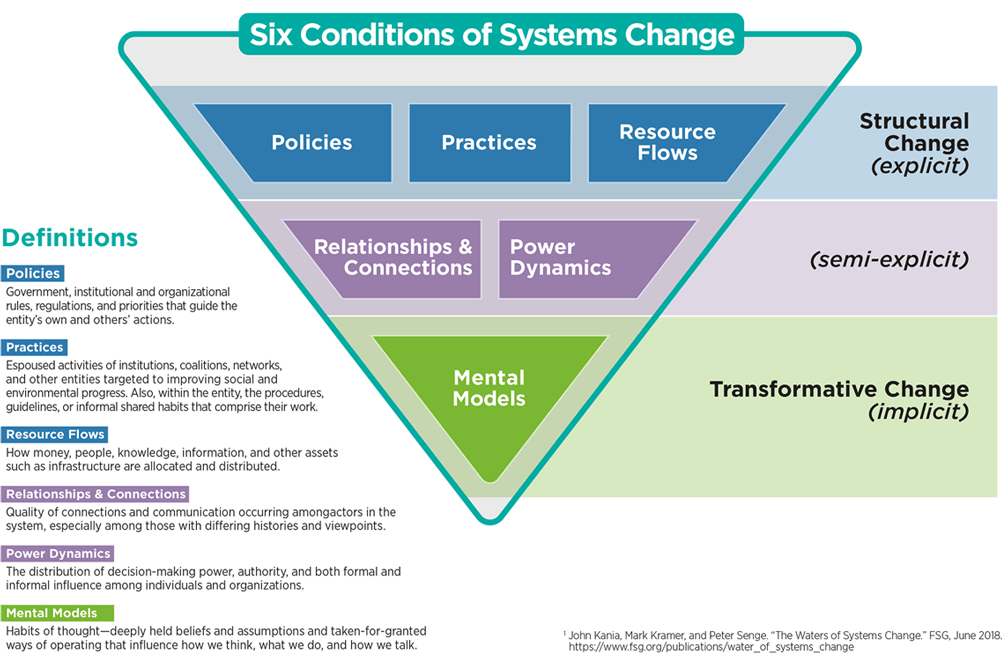
At ReThink Health, a Rippel initiative, we work with national and regional stewards to discover what it takes to design and execute transformative change and produce better health and well-being for all.
Stewards are people or organizations who take responsibility for working with others to create conditions that all people need to thrive, beginning with those who are struggling and suffering. Stewards may be affiliated with organizations or may act on their own agency, such as a resident. Stewards have (or are interested in developing) an equity orientation in regard to purpose, power, and wealth.

As a Rippel initiative, we are interested in working with a particular kind of steward—those who are positioned to influence how regional decisions are made, and how resources are spent—to equitably shift the system in ways that better produce health and well-being.
Rippel’s best hypothesis is that as stewards mature in their ability to facilitate cross-sector collaboration and alignment, they are able to create a new ecosystem for health and well-being in their regions; an ecosystem known for producing equitable outcomes. This hypothesis is backed by both empirical and anecdotal evidence. Like Rippel, you might be wondering: how do stewards mature? Working together with stewards to discover “how” is the reason for Rippel’s ReThink Health initiative and its multiple projects.
One of the major contributions of the ReThink Health Frontiers and Ventures projects was to develop A Pathway for Transforming Health and Well-Being Through Regional Stewardship. This Pathway clarifies Rippel’s hypothesis about the essential practices stewards should commit to and develop as part of their quest. It also describes what stewards can expect to experience when they work together in these ways, across five phases of development.
As our team works with stewards, we all get more and more knowledgeable about what the Pathway ought to include. With the passing of time we have refined our hypothesis, making it stronger and better for stewards who want to use it as a framework for transforming the regions they serve. Refinement will continue as we take on each new initiative and project.
ReThink Health’s team works together with stewards as learning partners. As stewards mature, they conquer challenge after challenge, and then encounter new ones. Rippel works hard with stewards who are at the forefront of discovering what it takes to overcome these challenges, including:
We work with our steward partners to carefully consider the six conditions of systems change, and ask: what conditions are holding the problem in place and how can stewards shift them to produce better health and well-being for all? Then, we prototype, make sense of, and refine strategies that best help stewards move along the Pathway and nudge their systems forward. We share the most promising strategies widely, so many more stewards can benefit.
